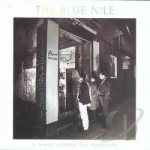Acanthea Grimscythe (300 KP) rated Repo! The Genetic Opera (2008) in Movies
May 12, 2018
Repo! takes place in 2056, where a planet-wide organ failure epidemic has led to drastic measures. In a time of need, a company by the name of GeneCo has come to the rescue. Offering payment plans to those that cannot afford their new organs, GeneCo saves the lives of those unfortunate souls. But what happens when they can’t meet their payments? Well, that’s what repo men are for, isn’t it?
So where does the parody come in? A similar system already exists in the way the American health care system is presently structured with its for-profit health insurance. Most insurance companies, like GeneCo, are not there for the benefit of their consumers, but for the filling of their pockets. As long as you can pay the premium (or the payment), your coverage remains intact and you’re able to get treatment and medication (or keep your organs in the world of Repo!). The moment you’re not able to do that, your coverage is often revoked (or your organs are repossessed). Of course, in the real world, this isn’t as brutal as it is in Repo! At least, not in most cases, but it can be just as scary. For myself, it’s often quite terrifying as I struggle to stay in remission from ulcerative pancolitis.
Moving on from the parody, there are other aspects of the movie that I feel are also accurate representations of today’s society – things that I feel Repo! was a bit ahead of its time on. The Largo family seems to represent the manner by which the wealthy feed upon the powerlessness of the poor. Also, am I the only one that, upon re-watching this film, can’t help but think of Trump when I’m looking at Rotti Largo? As a villain, Rotti is largely incompetent. He uses others to do what he can’t and often resorts to bullying to get what he wants, as can be seen in the blood contract with Blind Mag. Another example is how he manipulated Nathan and later Shiloh to break and control them, in hopes of controlling them. While it worked for the former of the two, Shiloh was not susceptible to his manipulation – yet another reference to something we’re seeing in today’s society in regards to Shiloh’s generation (that is present-day millennials) and the older generation, which is more mixed politically.
I think it’s also important that we take a moment to focus on Shiloh as a character. She is, perhaps, my least favorite character in this film. Then again, she was also in her rebellious teenage years and was, naturally, horrendously stereotyped. She loathed her father for keeping her bound to her room, even though she understood why and, even when she found out his sins and the lies he told her, she failed to turn against him – paying homage to the saying that “blood is thicker than water.” The end comics only state that she went into hiding, hinting that she was never to be heard from again – which is a shame. I’d like to think she’d become an activist, but… I guess that wasn’t her future.
One of my favorite things about this musical is the haunting and unearthly qualities that linger around Blind Mag and the Graverobber. This is a film I will watch again and again, even if others loathe it for being campy and over the top. In fact, I plan to show it to my Dad’s girlfriend’s kid.
Kyera (8 KP) rated The 5th Wave: Book 1 in Books
Jan 31, 2018
When the first wave comes, all technology is gone in a moment. An EMP takes everything out. The second wave caused massive tsunamis and destroyed the coasts of the world. The third wave infected and killed 97% of the remaining population in brutal fashion. The fourth wave destroyed all trust in humanity and introduced the constant threat of drones. The wave that makes you question every action... and the fifth wave... is us.
Cassie must survive in this strange world with no mother, father or brother to care for anymore - fighting and living because if she is the last human on Earth she refuses to go out with a whimper. She will fight until she can fight no longer. But she is not the only body left, even if she may be the only one with her own mind left. It is possible that one in every three people left is an Other. A Silencer. An Imposter. Has your mind and body been hacked? Do they look like us or can they make themselves look like us? Or maybe they've been here all along. Waiting. That's when you can't trust your eyes. You may be looking at an Other and not even realize it.
We next meet Ben, who must rediscover his fighting spirit if he wants to survive and survive he must. After not succumbing to the virus that infected him, he cannot give up. Taught to fight and given a new name, he must battle for his place.
Part III shows us a new perspective, an Other awakened in a human body and given a mission. To kill. To finish the human race, one by one. He has been tracking Cassie for a while and takes aim. Shoots. Traps her, but for some reason cannot bring himself to finish her.
Hunted. Shot. Then saved? Cassie wakes up being tended to by Evan on the family farm. He is the only one left of his family. Evan helps to nurse her back to health, bakes bread, carves walking sticks and wants to help her rescue her brother Sammy. What can't this farm boy do? And why does this make us so suspicious? Even Cassie can't quite bring herself to trust him. There are just little things that seem off, like a life-long farm boy with smooth hands and perfect cuticles. No callouses to be found. There's a small nagging feeling in her mind that asks- what if he's an Other?
The characters are well written and believable. You feel for them. Root for their successes and hurt when they fail. You wish for their survival despite the current chaos and destruction of the world. The world is familiar and yet fundamentally altered by the Others.
The book draws you in from the start and you puzzle over people and motives. Who will survive and if the human race survives this destruction, how will this ordeal fundamentally change the survivors? I am constantly questioning my conclusions and re-evaluating what I believe i happening. A great book is able to reveal just enough that the entire plot is not given away by page ten. This post-apocalyptic, alien-invasion novel is highly recommenede, especially if you plan to watch the movie. I cannot wait to read the next book, Infinite Sea!

5K Runmeter Run Walk Training
Health & Fitness and Lifestyle
App
Train to run your very first 5K race, and then continue with the award-winning Runmeter GPS...

Runmeter Running & Cycling GPS
Health & Fitness and Sports
App
Runmeter is the most advanced application for runners ever designed for a mobile device. Built from...
Kristy H (1252 KP) rated Fresh Complaint in Books
Jan 10, 2018
I often skip story collections, as I tend to feel a loss with them, as if the tale is unfinished, and I just want more details about each character and their motivations and end-state. I picked up FRESH COMPLAINT based solely on my love for Eugenides (Middlesex is an all-time favorite). I won't lie: I still felt that same unfinished feeling at the end of most of the stories. Clearly I just am meant more for long-form fiction. I also hadn't realized when I picked up the book that most of the stories were previously published, but luckily I am not usually reading The New Yorker and such, so I hadn't come across any of these previously.
One of the most exciting discoveries for me was, upon completing "Baster," confirming that it was indeed the premise for the silly film "The Switch" with Jason Bateman and Jennifer Aniston that is an incredibly guilty pleasure of mine. The story differs from the film, but you can clearly see how it's the base, and it's quite enjoyable.
Another favorite of mine was "Fresh Complaint," the final story in the collection, and clearly where it gets its title. We meet a young woman, Prakrtri, who is struggling with the fact that her family is trying to arrange a marriage for her, and a college professor who is traveling for work. How their paths cross is quite interesting. It's detailed, touching, and yet disturbing.
My other favorite was "Great Experiment" featuring an editor, Kendall, in his mid-thirties. He's comparing himself (unfavorably) to his peers, as he struggles financially in his job and resentfully watches his wealthy boss live well while not even providing Kendall health insurance. The story takes an interesting turn, and, as with much of Eugenides work, seems to have a greater message for us.
Overall, I didn't enjoy this as much as an Eugenides novel, because there just isn't the time to fall for his nuanced characters. I still enjoyed many of the stories and realize I probably gravitated toward "Fresh Complaint" and "Great Experiment" because they were some of the longer tales in the collection. If you like Eugenides, you may want to pick up this collection (provided you haven't already read the stories elsewhere). If you haven't read him in any form, go find Middlesex instead. 3.5 stars.
Sensitivemuse (246 KP) rated Jar City in Books
Jan 15, 2018
I’m still not sure what to think of Erlandur as a character. Like most protagonists in series like these they usually have an underlying personal issue (whether it be health, or family for example) which he does have, but his personality I can’t really quite make out. He doesn’t seem to have much of one except he cares for his daughter and her well being even though they are estranged. He does have some sense of humor and wit but overall he appears to be driven by his work and hard working to solve the crime (we all need police like these don’t we?.)
I’m liking how his relationship with his daughter is turning out. It’s nice to see them slowly step away from their estrangement and it shows they do truly care for each other even though it’s done through yelling (most families are like that though, aren’t they?) It shows a lot of tough love, and I’m hoping the best for Eva Lind in the next books (I hope she appears as I’m slowly starting to like her more.)
What I enjoyed the most of this book was the plot like I mentioned earlier. It went from point A to point B but in such a dramatic motion it certainly kept you reading to find out what was going to happen next. The mood of the story also, was excellent. It was dark, dreary, melancholy, and although not suspenseful like the majority of the crime novels, it didn’t have to be. It made the setting suitable for the plot and made it more enjoyable.
One little thing I do have to add though, is the side story with the bride. I’m not sure why that was mentioned as it had little to do with the main story and it seemed like a filler. It wasn’t necessary as the plot itself was fine without it. I also enjoyed the ending of the book. It was sad, but you came to the realization it had to come to an ending like this.
As this is book #3 in its native language, it’s considered book #1 in its’ English translation. It seems all right and nothing seems to be lacking. Perhaps a bit of backstory might have helped but it was comprehensible to read. Greatly recommended! It’s a great break from the usual detective novels we have out there.
Kristy H (1252 KP) rated A Good Neighborhood in Books
Mar 26, 2020
"An upscale new house in a simple old neighborhood. A girl on a chaise beside a swimming pool, who wants to be left alone. We begin our story here, in the minutes before the small event that will change everything."
This book took my heart and spit it right out again. Oh my goodness. It's a different, beautiful, and absolutely heartbreaking read. We're told from the very beginning--by our omniscient third person narrator--that something bad is going to happen. And yet, I lived in denial that this was true. I devoured this book in two halves. It's utterly engrossing, and the characters just pop off the pages. The teens, especially. Oh Juniper and Xavier. I will not easily forget either of you.
A Good Neighborhood tackles a host of timely topics, and it handles all of them deftly. Race, religion, sexism, feminism--none of these are exempt in the pages of this novel. We see whiteness as a symbolism for purity, and we watch as Juniper struggles with the set of values being pushed upon her by her mother and stepfather, including a "purity vow" to remain both a virgin and loyal to her future husband. And then there's Xavier, a talented musician, who has been raised by his strong mother after his father's death. She wants so much for her son to do anything, but yet lives in fear because he is biracial. Juniper, Xavier, and Valerie were such powerful characters.
I do not want to give much of the plot away, but I can tell you that this book is heartbreaking and beautiful. It will get you to think about racism and sexism. The strong themes of good versus evil are presented in such a unique and compelling manner. Adding the third-person piece just gives an extra piece to the story. This book is incredibly well-written and will stay with you for quite some time. 4.5 stars.

Conversation Therapy Lite - Questions for Expressive Language, Pragmatics, & Cognition
Medical and Education
App
Conversation Therapy gets people talking! Now you can try this professional speech therapy app to...

Longitudinal Analysis: Modeling Within-Person Fluctuation and Change
Book
Longitudinal Analysis provides an accessible, application-oriented treatment of introductory and...





